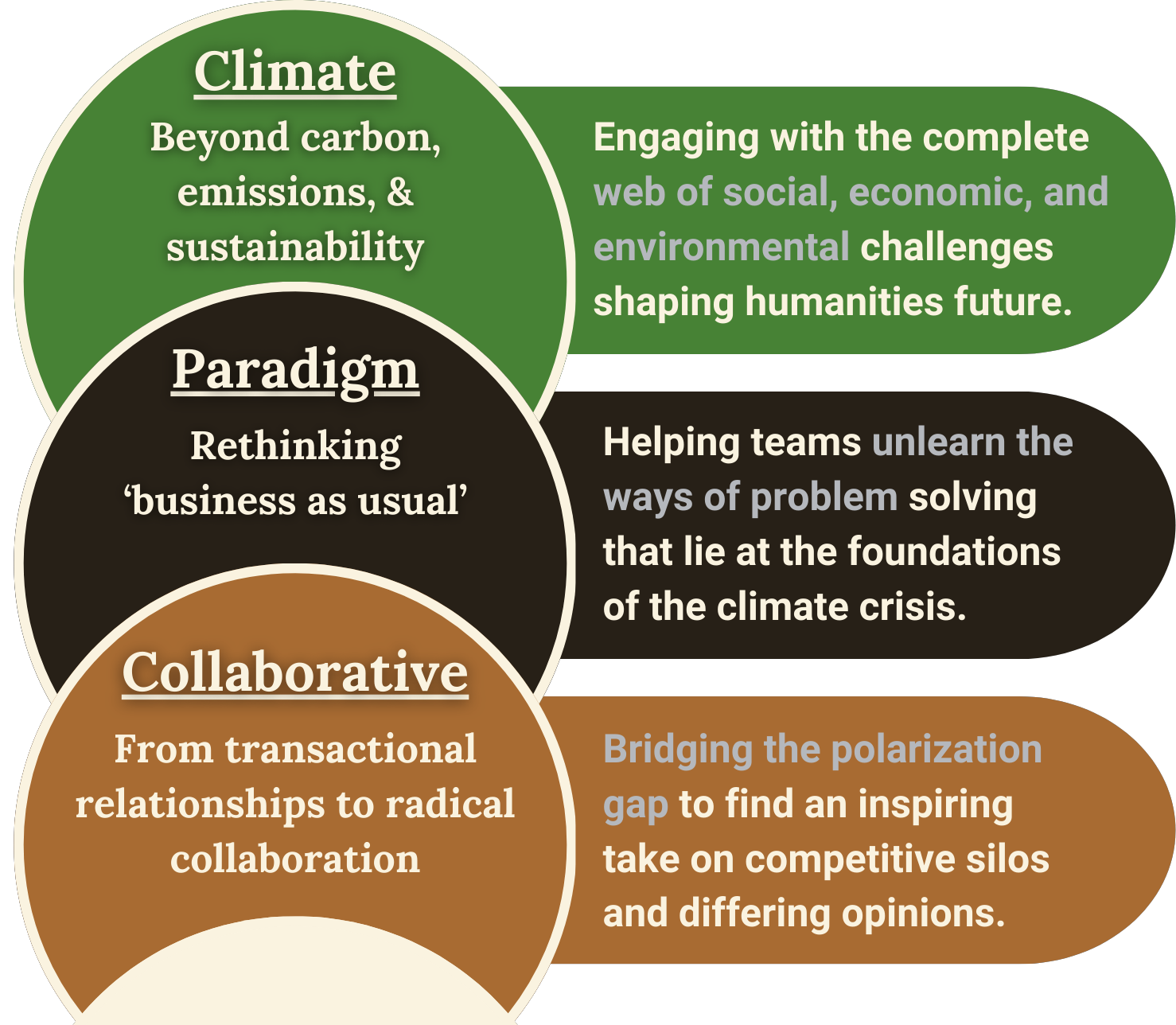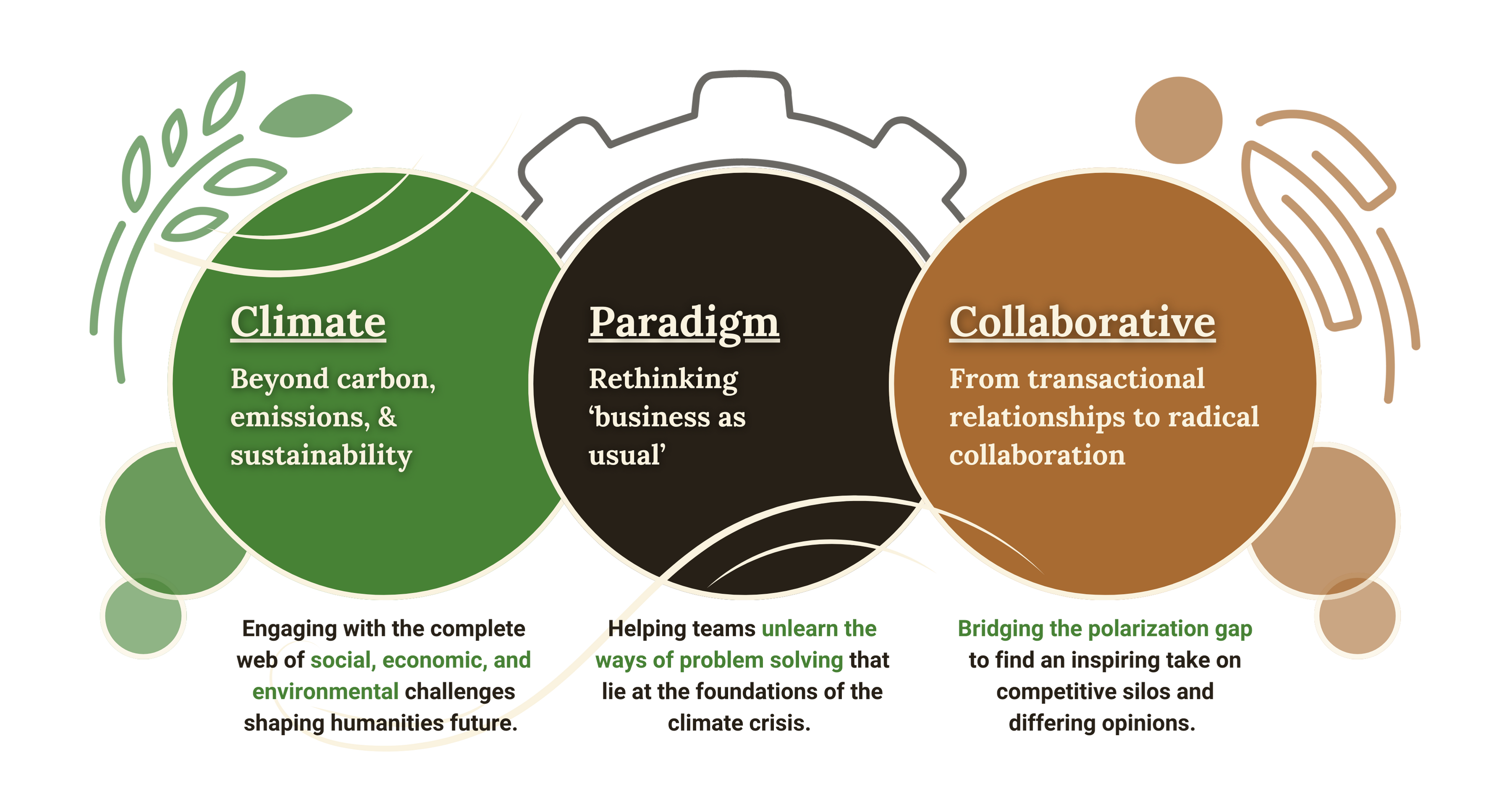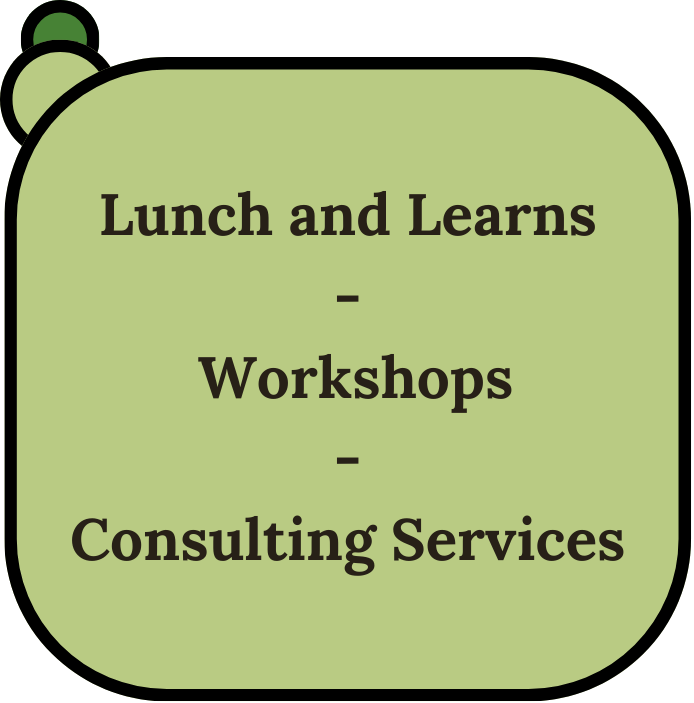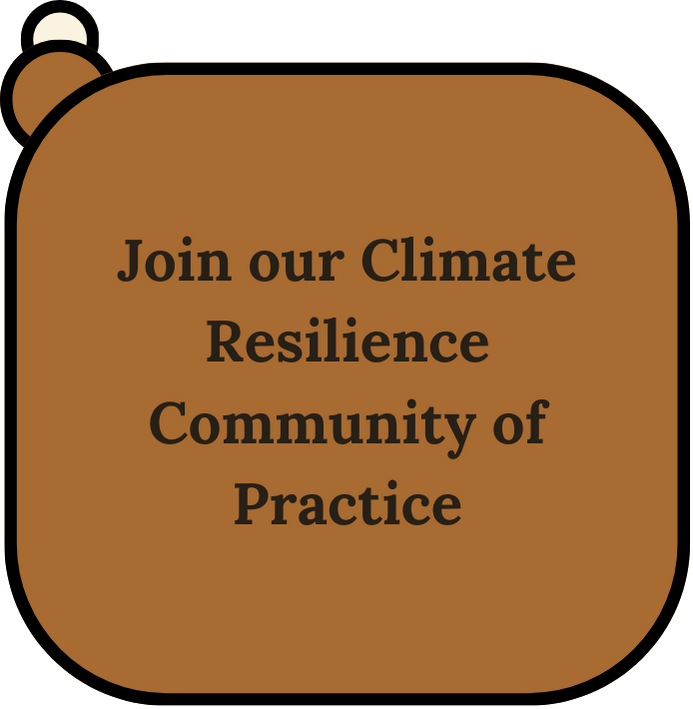Empower your organization to lead through global uncertainty
Future-proof your business and build climate resilience in a world shaped by complex social, economic, and environmental challenges.
Who We Are
Climate Paradigm Collaborative is an interdisciplinary consulting firm who's team is uniquely positioned to accelerate corporate adaptation within the web of social, economic, and environmental challenges known as the polycrisis.
We specialize in group facilitation, scenario planning, and modernizing the way organizations approach social & environmental impact. We help our clients develop robust internal systems which foster environmental accountability and have the power to generate meaningful social change over time.


Do your sustainability efforts feel like they’re barely scratching the surface?
Do systemic challenges like climate change and political tension feel too huge or complex to tackle?
Traditional corporate social responsibility often falls short, addressing symptoms rather than root causes, leaving teams frustrated or apathetic. Gradual carbon reduction is essential, but real transformation requires a deeper shift in culture, strategy, and mindset.
At Climate Paradigm Collaborative, we go beyond check-the-box sustainability. We bridge interdisciplinary research into practical corporate application, tugging at the social roots of the climate crisis (polycrisis).
How to Work With Us
The first step is always getting to know each other. We prioritize building relationships founded on a mutual understanding of how our Climate Paradigm’s unique skills have the best potential to interface with your team’s unique challenges and strengths.
Practical Outcomes
Align with Climate Ethics, Codes, and Standards
Translate nebulous documentation into robust internal guidelines that go beyond traditional concepts of corporate sustainability.
Lead Socio-Environmental Change
Leverage your organizations existing wisdom and resources to lead positive socio-environmental change in your industry.
Adapt to Global Uncertainty
Future-proof your organization by slowing down and conceptualizing new ways of doing business within an array of potential futures.
Strengthen Team Cohesion and Autonomy
Increase your team's capacity to navigate polarizing topics, collaborate on dilemmic problems, and find empowerment when facing complex global issues.
Transform Climate-Anxiety
Present your team with an outlet to process anxiety related to global crisis as a mechanism for managing burnout, increasing efficiency, and tapping into new ideas.
Attract and Retain Top Talent
Appeal to young professionals by equipping your leadership with new language, perspectives, and soft skills to enhance their ability support your organizations psychological well-being.

Who we Work With
We specialize in guiding product and consultancy-oriented organizations that want to engage in novel ways of approaching the web of global crisis.
We work with people and organizations regardless of of where they are at, where they have come from, and what they believe.
Engineers | Designers | Executive Leadership | Data Scientists | Urban Planners | Architects | Science Educators | Researchers | Academics | Counsellors | Sustainability Professionals | Management Consultants | Project Managers | Economists | Finance Professionals | HR Professionals | Procurement Specialists | Customer Service Agents | Sales Representatives
“We need to grieve for our planet and tap into our sense of love and connection that underlies that grief. We as human beings need to show up and stay present when facing the crisis. We may never see the ultimate outcome of our work but cannot let this deter our sense of hope nor our collective determination. The most radical thing any of us can do at this time is to be fully present to what is happening in the world.”
Subscribe For Events & News
Contact Us
- +1 (204) 995-1160
- nick@climateparadigm.ca


